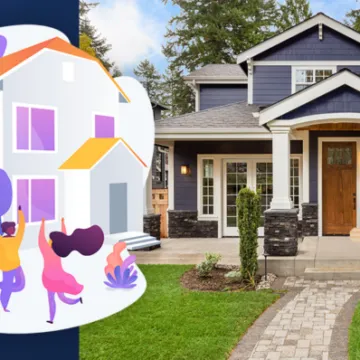We might have good intentions when it comes to creating a realistic budget and sticking to it, but life happens. Sometimes no matter how well we plan, it can be tough to manage through unexpected financial challenges like a sudden change in income, rapidly rising prices or an emergency-related expense.
When we hit a bump in the road, it is possible to become overextended, making it difficult to stay on track with loan and credit card payments.
If your income drops, or you face unexpected expenses, and it becomes a challenge to pay all of the monthly bills, it might be time to communicate with your creditors.
Getting behind on payments can be a time of stress and worry, but connecting with creditors gives you the best options – even with a challenging payment history.
As presented in the webinar highlight above, here are a few ideas to connect with your creditors to figure out options that might work for you.
1. Make the Connection
Making the first call can be stressful, but necessary. It is helpful to make the first outreach even if you might feel embarrassed or worried. Most people run into bumpy finances at some point in their lives. People who connect with their creditors immediately after experiencing payment issues get the most chance for success.
Chances are, creditors will understand the situation if household income is reduced or there are other issues. An honest, frank discussion with creditors helps all parties figure out the best solutions.
For those with a healthy credit history, your creditors will look at your track record of consistently paying bills on time. With a healthy previous history, the conversation will go a lot easier and the options can be easier to manage as well.
2. Connect with the Decision Maker
Once you make the call to the creditor, understand who it is you are talking to in a polite and kind manner. Be sure you have connected with the person who can help with your specific situation. If not, briefly explain the situation and ask to be transferred to the best resource. That way you won’t have to repeat information multiple times and speed up the process to find your best options.
3. Preview Your Specific Situation
Take the time before you reach out to understand your specific situation. List out your creditors, the balances of your debt, grace periods, monthly payment history and other information all in one place. From deferment to debt management using GreenPath, understand some of the options beforehand to reduce any chance of surprise when you speak with creditors.
4. Know Your Budget
Carefully look over your budget before speaking with creditors to understand what payments you can manage. Affordability is key. Confirm how much income you can count on each month and how much you need to set aside for monthly living expenses including food, housing, transportation and more. When you have a sense of how much you owe verses how much you can pay, you can work with creditors more effectively.
5. Document the Conversation
It’s a good practice to document the conversations you have with each creditor. Make a note of the date, the name of the person you spoke with, and any changes or new processes for payment. While you don’t have to document an exhaustive word-for-word summary, it will be helpful to track the key discussion points in writing in case there are any questions as you pay down debt.
GreenPath as Your Guide
While these tips can help you communicate with your creditors, you don’t have to go it alone. GreenPath’s caring counselors are available for specific advice and an action plan to get you on track to pay off debt and build a healthy financial life.
GreenPath can help you smooth the way. We have more than 60 years of experience supporting people who are solving financial challenges.
Helpful Links
GreenPath Financial Service
GreenPath, A Financial Resource
If you’re interested in building healthy financial habits, paying down debt, or saving for what matters most, take a look at these free financial tools.










